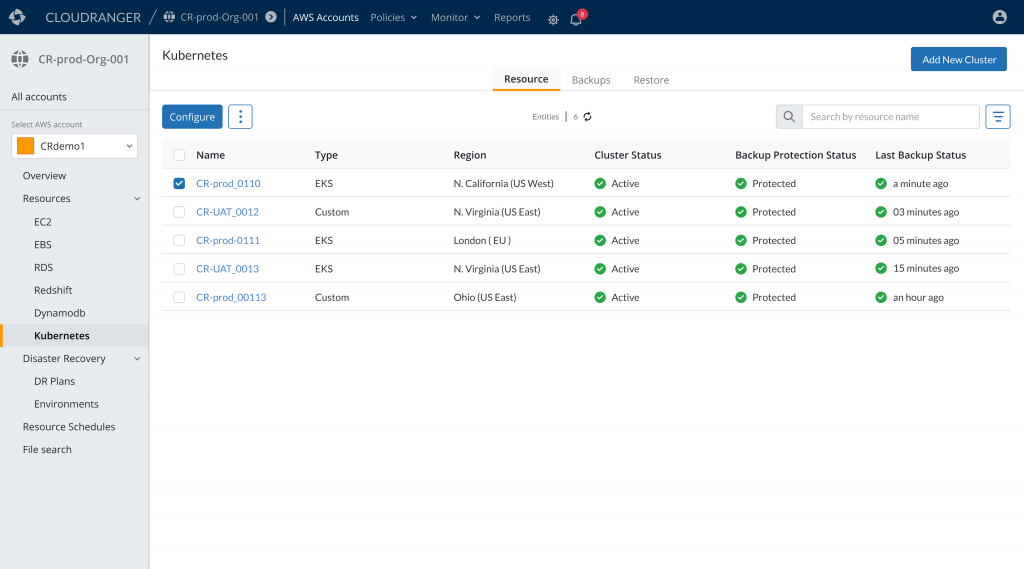Druva Previews Data Protection Service for Kubernetes
Druva today announced it has extended the reach of the data protection capabilities provided by its cloud service to now include support for Kubernetes clusters.
Available under an early access program as an option within the CloudRanger service from Druva starting in the fourth quarter, the company is aiming to make Kubernetes support more widely available in the first half of 2021.
Druva CTO Stephen Manley says rather than requiring IT organizations to acquire and deploy a separate backup and recovery platform, they can employ a cloud service deployed on the Amazon Web Services (AWS) cloud that many organizations already rely on to protect legacy IT environments. That approach will also make it easier for IT teams to apply the same policies using a common user interface to cloud-native applications that they do across the rest of their application portfolio, he says.
 Druva is also designed to enable IT teams to capture snapshots of IT environments that with the rise of container applications have become much more dynamic, notes Manley. Those snapshots can also be restored to a new location for migration, cloning or troubleshooting purposes. In fact, Manley notes the clones Druva creates are widely employed to move data in and out of AWS.
Druva is also designed to enable IT teams to capture snapshots of IT environments that with the rise of container applications have become much more dynamic, notes Manley. Those snapshots can also be restored to a new location for migration, cloning or troubleshooting purposes. In fact, Manley notes the clones Druva creates are widely employed to move data in and out of AWS.
Manley says despite the rise of DevOps most data protection tasks will continue to be managed by IT administrators simply because most DevOps teams have far too many other issues to address. Data protection winds up falling down the priority list of a DevOps team until there is a catastrophic event. IT administrators in contrast make data protection a priority alongside a raft of other data management tasks they routinely perform, he notes.
In general, as the number of stateful applications deployed on Kubernetes increases, the greater the chance there is of losing critical data should a cluster go down for any reason. At the same time, cybercriminals are launching waves of ransomware attacks against multiple platforms. A pristine copy of the data stored on a Kubernetes clusters needs to be available somewhere else in the event the data residing on the cluster becomes encrypted by cybercriminals demanding payment to unlock that data.
Given the fact that cloud-native applications are among the latest applications deployed by an IT team, chances are good the data running on a Kubernetes cluster is valuable to organizations launching, for example, a digital business transformation initiative. Everyone agrees protecting data is important, but as a priority backup and recovery processes tend to remain fairly low. Many IT teams don’t test to see if the data they backed up is actually recoverable until it’s too late.
In the meantime, it’s too early to say how the battle over data protection will play out in the age of Kubernetes. Historically, each time a new platform has comes along there’s been a rapid expansion in the number of startups providing data protection offerings. Kubernetes is no exception. However, at a time when it’s become much easier to centralize backup and recovery via the cloud, the opportunity for startups to elbow their way into IT environments may not this time prove to be as great.




